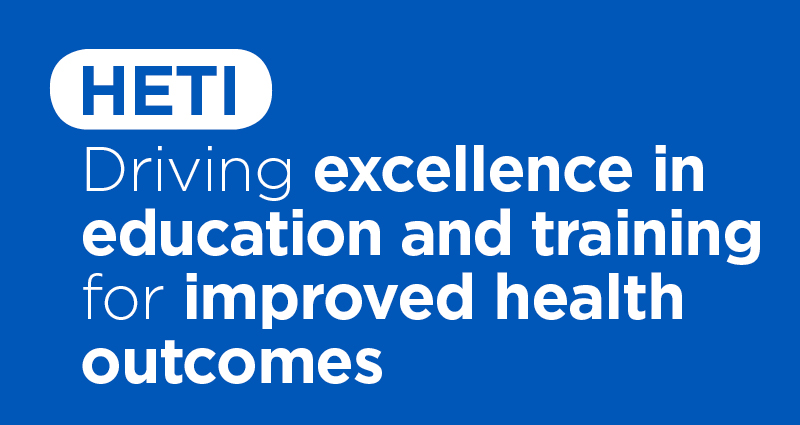Recovery from the ground up

The role of a psychiatrist, GP, or nurse, is to provide excellent care. This care needs to be informed by science and delivered in a way that is focused on the person's ability to get what they want out of life.
Dr Roderick McKay, Director Psychiatry and Mental Health Programs explains how HETI Higher Education proudly takes the lead on a person-centered, community-centric, collaborative, recovery-based approach to mental health. He explains why this lies at the heart of HETI Higher Education's learning approach.
The future of recovery is here
Recovery in mental health has traditionally focused on improving symptoms or function – at HETI Higher Education, we also guide students to develop skills that focus on improving the quality of life and helping patients to achieve their goals.
This broader recovery concept comes from the premise that one of the most valuable things we can give to a person we’re treating is hope – and the ability to accomplish their goals.
At HETI Higher Education, every touchpoint, every higher education course embeds recovery-oriented care from the outset – rather than retrofitting this into long-established existing studies. We reshaped our courses in Applied Mental Health Studies and Psychiatric Medicine in 2017, and we are so excited to have had this rare opportunity to create course content from scratch, based on our years of experience in combination with the very latest thinking in our respective fields.
Our students are taught to help maintain the humanity of people in their care – even when they’re very ill, or in long-term recovery. We achieve this by enabling decision-making in the person our students care for; based on what that person wants. The decision-making process can include trade-offs, so we train our students to provide their patients with guidelines on the benefits, potential risks and side effects of the person's decision.
The respect and humanity in recovery
We’re passionate about recovery at HETI Higher Education because it’s all about making a difference from the inside out. This comes from a place of deep respect and humanity. We want to empower the patient, not just 'treat and keep them safe'.
There's an acronym used for recovery, called CHIME. This stands for Connectedness, Hope, Identity, Meaning and Empowerment. At the core, CHIME is about increasing a person’s hope, while supporting their unique identity. This is why, when considering treatment and support for a person with mental illness, we try to understand what might be happening biologically, psychologically, and socially – to learn what is really happening in their environment.
Going deeper into recovery
Recovery is extremely important to us at HETI Higher Education, our tutorials and assessments encourage the student to project themselves into the situation of being a patient.
One of the ways that we teach this is by sharing video footage of people with mental illness talking about some of these things. This gives our students the opportunity to learn through hearing first-hand about a patient’s experience, and what was important to them at that time. Nothing can replace this hands-on insight.
Learning through personal context
We encourage students to project their own context into how they learn. For example, if we’re looking at recovery, we are asking ourselves: 'How can we maximise this person's ability to be safe and in control of their lives – what does this look like in the area they work in?'
This may include reflecting on what policies, regulations, and resources are in place, and questioning how they limit or provide opportunities. Students are always encouraged to share their context and experience with the class, which helps to shape a more meaningful and pragmatic conversation.
By looking at recovery from the ground-up, we are providing a far more rewarding – and relevant – study pathway. At the heart of our course, we aim to ignite passion in our students and show them a way to live a meaningful life, through the contribution they make to people who have a mental illness. It doesn't get more important than this, and I couldn't be prouder of our students for taking on this rewarding challenge.




